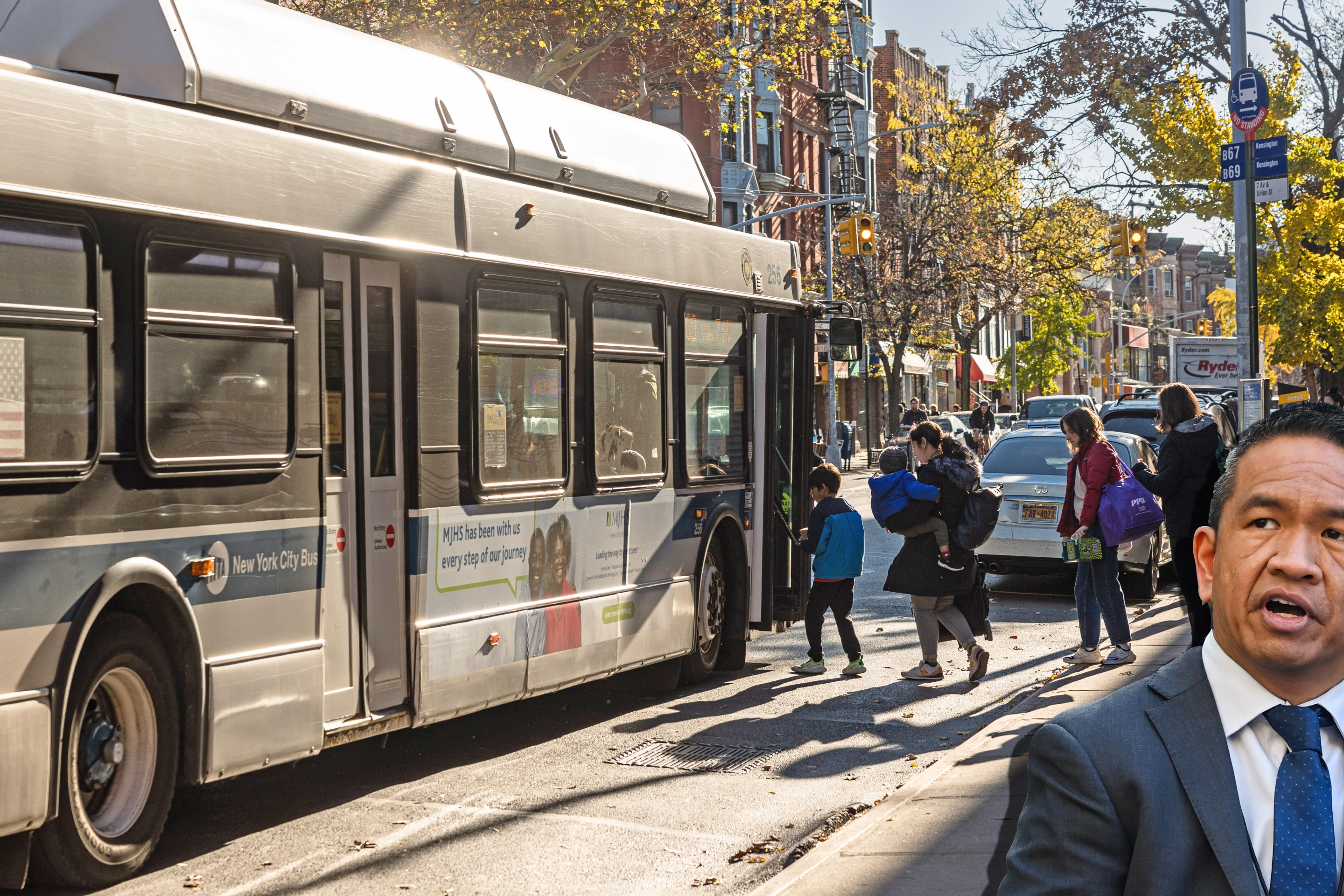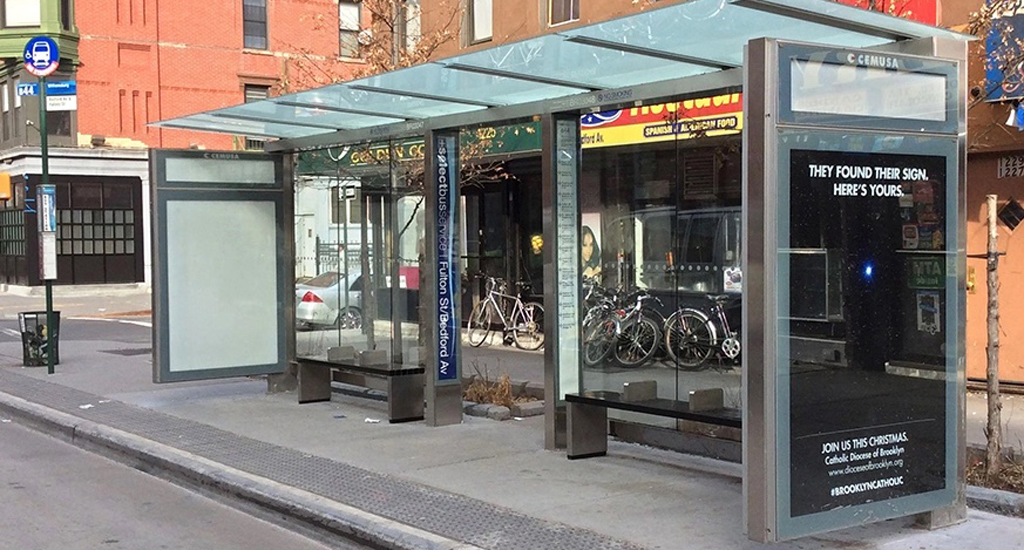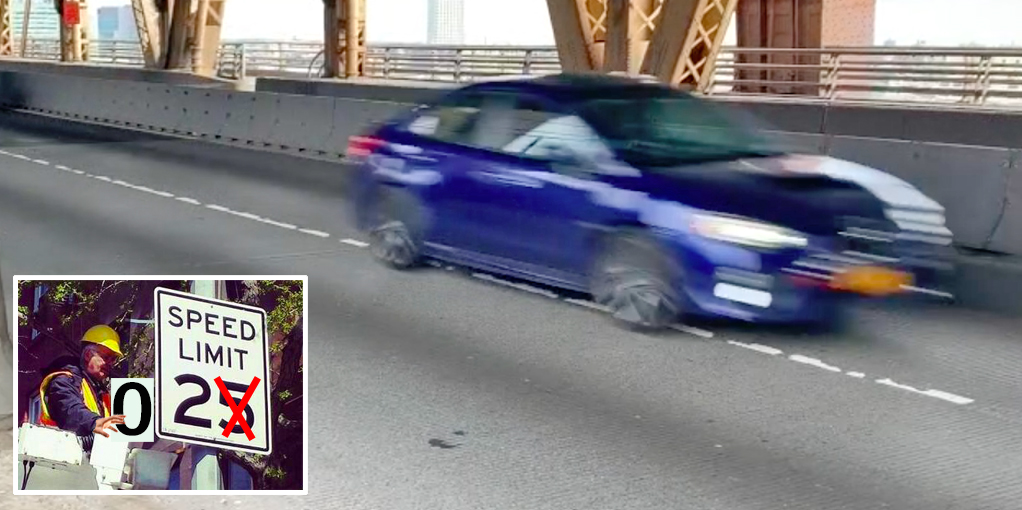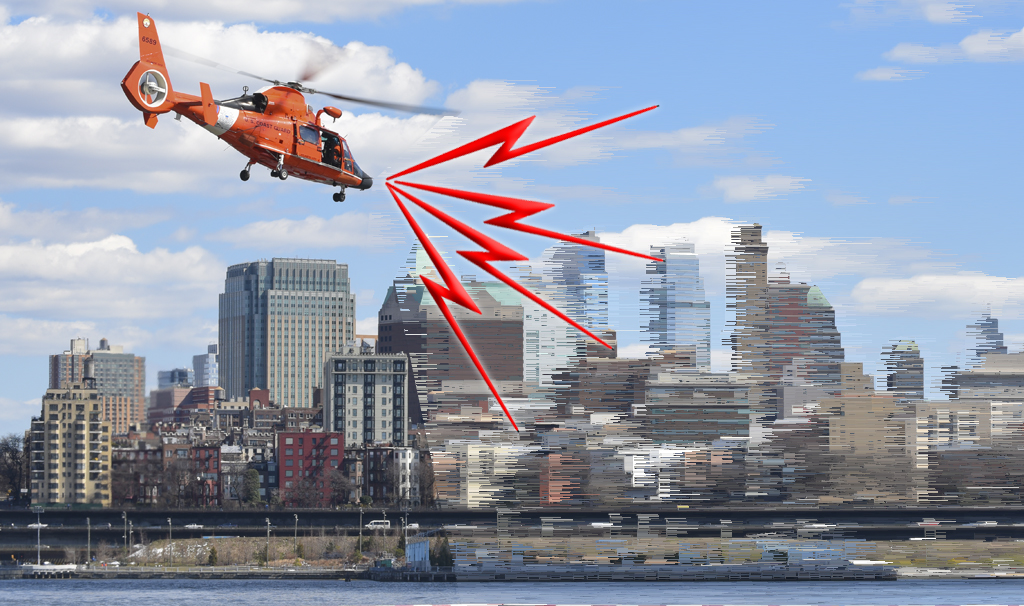It may be the Vision Zero era, but some thingsneverchange. If you're looking for cost-free, consequence-free storage of your private automobile in public space, the City Council still has your back.
The bill under consideration today by the City Council's transportation committee, to nibble away at alternate side parking restrictions, may not be as egregious as previous council ideas like free time at unpaid meters or changing city law to mandate parking permits for teachers. But it did offer an opportunity for council members to inveigh on behalf of put-upon "real New Yorkers" who store their cars on the street for free.
Although the average car owner in New York City has a much higher income than a car-free counterpart, that didn't stop council members from constantly referring to parking tickets as a tax on the middle and working class.
"It's the anger of real New Yorkers who feel that the city is using them as a piggy bank and that the middle class is being squeezed by unnecessary tickets," said Council Member Costa Constantinides of Astoria, who signed on to the legislation after seeing illegally-parked drivers on a swept street get tickets before the parking restriction ended. "It felt as if it was just for revenue," he said.
The bill would allow drivers to park during prohibited hours so long as they are "in the vehicle and ready to move" when the street sweeper comes through. "We should not be going after the working class or middle class," said Transportation Committee Chair Ydanis Rodriguez, who has pushed the legislation for years. "[It's] a struggle New Yorkers are all too familiar with."
The city's sanitation and police departments testified today in opposition to the bill. "The signs are put up there for a reason," said NYPD Inspector Dennis Fulton. "The streets need to be cleaned."
In recent years, the city has already cut the no-parking hours for street sweeping, from three hours to 90 minutes in residential areas, and from one hour to 30 minutes during early-morning hours on commercial streets. In its testimony [PDF], DSNY said the bill would encourage drivers to park before the sweeper comes through if a street sweeper needs to come by twice to finish the job, as can be the case during autumn after leaves have fallen.
Currently, street sweepers are not outfitted with tracking devices and operators communicate using two-way radios. Rodriguez said DSNY should outfit each vehicle with GPS to notify drivers once the street has been cleaned, as it does with snow plows, but department representatives said they weren't certain their tracking systems could provide the up-to-the-minute accuracy the bill would demand.
While Rodriguez was interested in adding GPS to the street sweepers, there was no discussion at today's hearing of adding cameras to the vehicles, as is done in Washington, DC [PDF], so that illegally parked drivers can be automatically fined as a street sweeper moves around a car.
Also not up for discussion: Why the city gives away free on-street parking in the first place, and the negative consequences of the status quo free-for-all.
Today's parking kvetch-fest contrasted with the other bill under consideration, which would require businesses with 20 or more employees to offer pre-tax transit benefits. Modeled on a similar measure in San Francisco, the bill would benefit 605,000 of the 1 million NYC workers who are eligible for the program but are denied access by their employers. Each worker could save $443 annually by using pre-tax dollars to pay for a monthly MetroCard, according to advocacy group Riders Alliance.
Unlike easier free parking, this bill would provide real benefits to working class New Yorkers. "It's an issue of equity and social justice," said Council Member I. Daneek Miller, who noted that many large employers offer the benefit to higher-income employees who use the benefit for LIRR or Metro-North fares.
The bill was opposed by representatives of the New York City Hospitality Alliance and the Food Industry Alliance of New York State. "This is just another example of a small business mandate," said Andrew Rigie of the Hospitality Alliance. He suggested the bill be changed to include only companies with 100 or more workers because, he said, it is too difficult for moderately-sized businesses to offer the program.
But testimony from bill supporters, including Riders Alliance members who themselves work at organizations with fewer than 20 employees, said their employers didn't have any difficulty providing the benefit once they were made aware of it.
The city's Department of Finance supported the bill's goals, but objected to being put in charge of ensuring compliance, saying that it exceeded its authority under the City Charter and the department does not have the expertise necessary to administer the program. Bill sponsor Dan Garodnick said he would be open to changes to the bill.
The committee didn't vote on either bill today. Riders Alliance is hosting a strategy session on the transit benefit bill tomorrow at 6:30 p.m.




